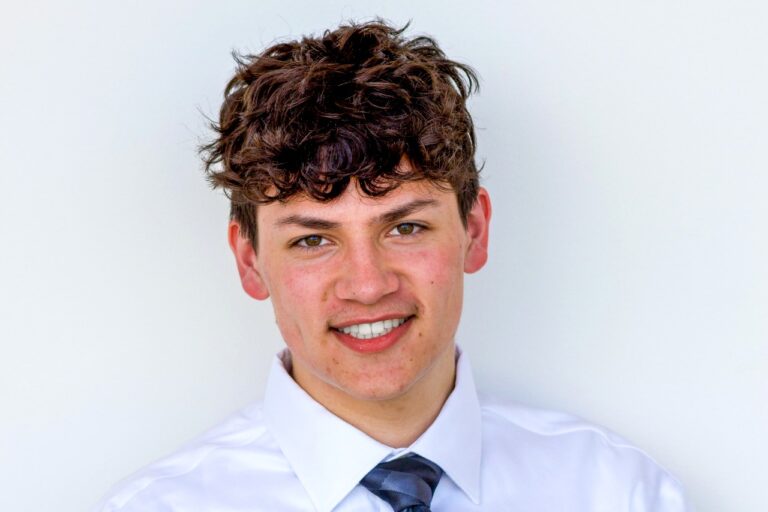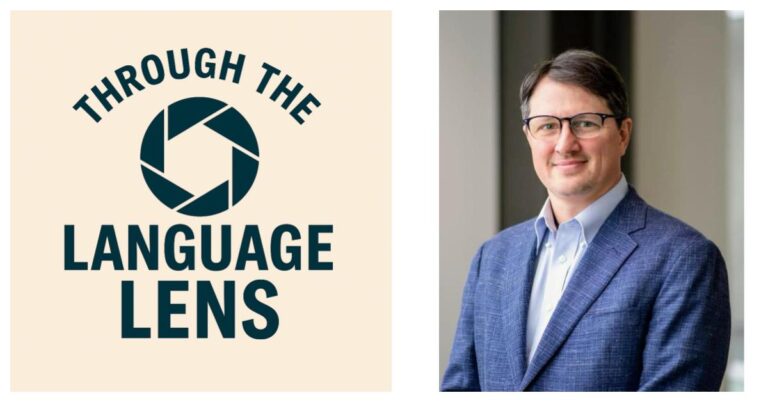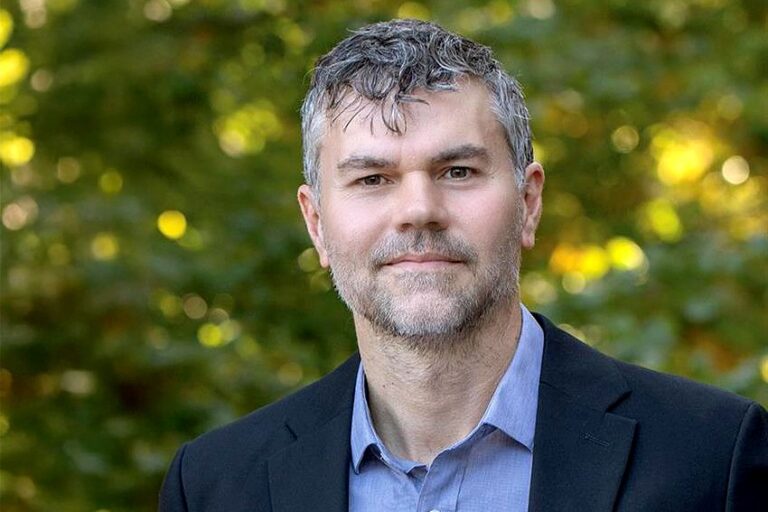The Japanese-English Language Exchange (JELE) isn’t a class, an app, or a trip. It’s a recurring casual virtual chat between college students, passionate about practicing Japanese and English, that’s building connections here at MSU and across the globe.
Ren McCowan, an MSU senior majoring in Japanese with minors in TESOL and Linguistics, founded the program in 2020 after realizing what helped him learn language best — talking with real people he could form connections with.

“I started the Japanese-English Language Exchange with the goal of connecting learners of languages to help them practice in a way that they cannot experience inside the classroom,” he said.
The growing group with members from Michigan, Japan, Canada, Korea, China, and New Zealand meets biweekly over Zoom, with loose themes for each meeting to get the conversations (in Japanese and in English) flowing.
“I started the Japanese-English Language Exchange with the goal of connecting learners of languages to help them practice in a way that they cannot experience inside the classroom.”
Ren McCowan, MSU senior majoring in Japanese
“So many exchanges and social events pertaining to language learning are formal and rigid and, as a result, inhibit learners’ confidence and willingness to participate,” McCowan said. “The relaxed atmosphere we created with the JELE was the foundation to those real relationships, and I think it’s the reason the exchange has stayed so popular over time.”
Now in its second year, the JELE is excited to welcome new leadership to continue its impact on a wide range of language learners. MSU students Quinton Strausbaugh, a Japanese and Computer Science junior, and Alexis Syth, a Japanese and Psychology senior, along with Kai Yokoyama, a senior at Nagoya City University in Japan who is majoring in International Studies, are now the Co-Coordinators of the program.

“I joined the JELE as a first-year Japanese student and going to my first language exchange was a bit scary,” Syth said. “But everyone was so kind and helpful during our conversations. I knew I wanted to be a part of this program in a bigger way, to bring that comfort level to more language learners.”
Syth, Strausbaugh, and Yokoyama hope to build upon the foundation that McCowan laid and continue to grow the program in capacity and inclusivity.
“When learning a language, making mistakes is not only going to happen frequently, it’s essential for learning,” Strausbaugh said. “If you don’t make any mistakes throughout your journey, then it’s not a journey worth having. Learners need mistakes to reflect on how they can grow, and we hope to continue to make the JELE a place where students can be comfortable making those mistakes.”
“It’s incredibly meaningful when learners make friends or find partners to practice together, outside of JELE, to take their language skills to the next level.”
Kai Yokoyama, senior at Nagoya City University in Japan
One goal of the JELE is to build relationships that extend beyond the program.
“It’s incredibly meaningful when learners make friends or find partners to practice together, outside of JELE, to take their language skills to the next level,” Yokoyama said.
Students interested in joining the JELE are encouraged to contact the coordinators, as well as use the resources within MSU’s Department of LInguistics, Languages, and Cultures.
“It’s a tight-knit community that’s brought about a lot of laughs and learning,” McCowan said. “We’re very proud to continue this student-led program for people passionate about language.”


